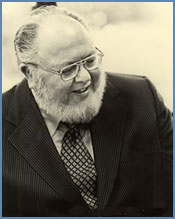Herman Kahn was the inventor of scenario analysis, and he first applied it to analysis of US military options in the Cold War with the USSR in the 1950s. I was struck when I read his books by the fact that scenarios were developed in the same decade as possible worlds semantics for logical systems or languages, and both at a time when most people felt there was a choice of only two or three over-arching political systems. (In contrast, from the fall of the Berlin Wall until the Global Financial Crisis, most people probably thought there was no such choice, western capitalism having prevailed over all alternative systems. Now, of course, nobody knows anything.)
I don’t think these simultaneous facts of scenarios and possible worlds were coincidences. Which leads me to a question that has long intrigued me: just who did develop possible worlds semantics? Although the idea dates at least to Leibniz, Saul Kripke is usually credited, and so these semantics are often called Kripke frames.
But there are other candidates:
- Richard Montague, logician and linguist, who published in 1960, but had presented his work at a conference at UCLA in 1955.
- Carew Meredith and Arthur Prior in 1956. According to Jack Copeland, these two logicians developed the first possible worlds semantics for propositional modal logic in a one-page note dated 1956. Meredith was a near contemporary of Frank Ramsey at Winchester and Trinity College, Cambridge.
- Charles L. Hamblin, whose London University PhD thesis submitted in October 1956 presents a possible worlds semantics for question-response interactions.
- Hugh Everett, who presented the first formal possible-worlds theory of quantum mechanics in physics, in his 1956 Princeton University PhD thesis.
- Jaako Hintikka, who developed a possible worlds semantics for logics of belief. Although published in 1962, I understand Hintikka’s work was completed as early as 1957.
- Stig Kanger, who published in 1957.
- A. Bayart, a Belgian logician, who published in 1958 and 1959.
As I said, it is exceedingly odd that all these works were published around the same time. In addition, both Everett and Kahn were at Princeton University in the 1950s, although I don’t know if they overlapped. Also, Kahn had studied physics, so may have been aware of recent developments in the subject.
References:
A. Bayart [1958]: Correction de la logique modale du permier et du second ordre S5. Logique et Analyse, 1 (1): 28-45.
A. Bayart [1959]: Quasi-adéquation de la logique modale du second ordre S5 et adéquation de la logique modale du premier ordre S5. Logique et Analyse, 2 (6-7): 99-121.
B. J. Copeland [1999]: Notes towards a history of possible worlds semantics. pp. 1-14 in: The GoldBlatt Variations: Eight Papers in honour of Rob. Uppsala Prints and Preprints in Philosophy, Number 1. Uppsala, Sweden: Department of Philosophy, Uppsala University.
H. Everett [1956]: The Theory of the Universal Wave Function. Princeton, NJ, USA: Princeton University Press. Reprinted as pp. 3-140 of: B. S. DeWitt and R. N. Graham [1973]: The Many Worlds Interpretation of Quantum Mechanics. Princeton, NJ, USA: Princeton University Press. The main results of Everett’s PhD were published in: H. Everett [1957]: “Relative State” formulation of Quantum Mechanics. Review of Modern Physics, 29 (3): 454-462.
Robert Goldblatt [2006]: Mathematical modal logic: a view of its evolution. D. M. Gabbay and J. Woods (Editors): Handbook of the History of Logic. Volume 7.
C. L. Hamblin [1957]: Language and the Theory of Information. London, UK: PhD Thesis, Logic and Scientific Method Programme, University of London. Submitted October 1956, awarded 1957.
J. Hintikka [1962]: Knowledge and Belief. Ithaca, NY, USA: Cornell University Press.
H. Kahn [1960]: On Thermonuclear War. Princeton, NJ, USA: Princeton University Press.
H. Kahn [1965]: On Escalation: Metaphors and Scenarios. Pall Mall Press.
S. Kanger [1957]: Provability in Logic. Stockholm Studies in Philosophy. Stockholm, Sweden: Almqvist and Wiksell.
S. Kripke [1959]: A completeness proof in modal logic. Journal of Symbolic Logic, 24: 1-14.
S. Kripke [1963]: Semantical analysis of modal logic I: normal propositional calculus. Zeitschrift fur mathematische Logic und Grundlagen der Mathematik, 9: 67-96.
0 Responses to “Scenarios and possible worlds”